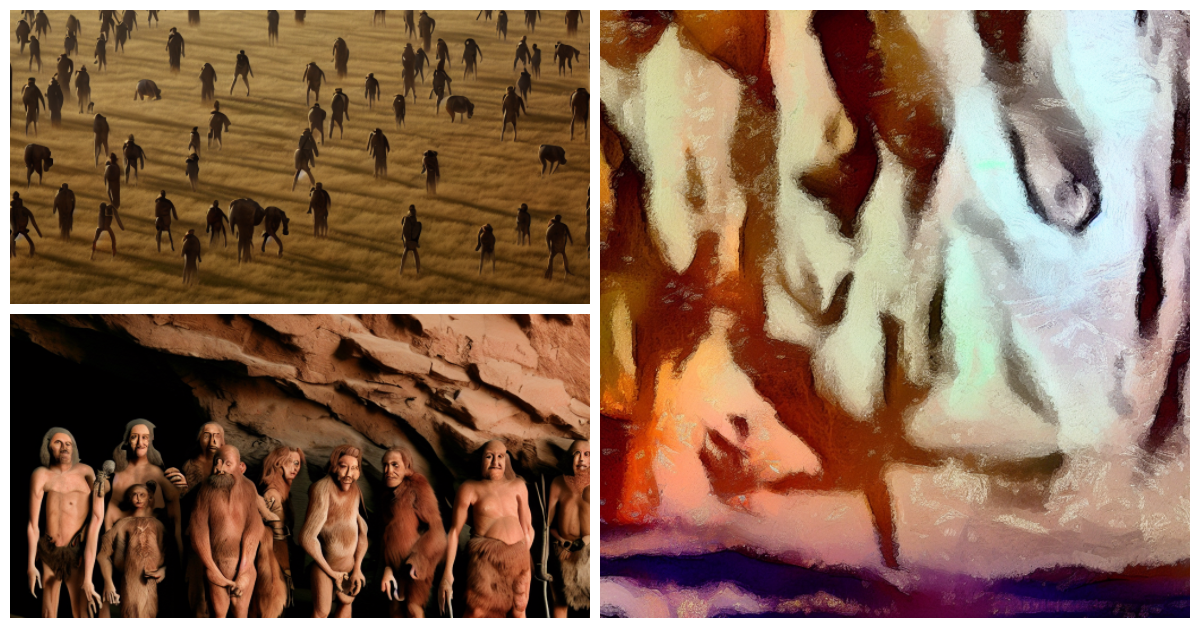Thought-provoking and eye-opening book about the origin, the evolution and destructive nature of homo sapiens. However there seems to be hope of improvement. Or the danger of spreading further to other planets.
In his book Sapiens: A Brief History of Humankind, Yuval Noah Harari argues that humans have been a plaque to the flora and fauna of Earth since our earliest days as hunter-gatherers. However, it was the Agricultural Revolution, which began around 11,000 years ago, that really allowed humans to start taking over the planet and wreaking havoc on the natural world.

With agriculture, humans were able to produce more food than they needed, which led to population growth and the rise of cities. This, in turn, led to deforestation, overgrazing, and the extinction of many animal species. Harari notes that humans have caused more extinctions in the past 10,000 years than any other species in the history of Earth.
The Industrial Revolution, which began in the 18th century, only made things worse. With new technologies, humans were able to exploit natural resources at an unprecedented rate. This led to even more pollution and deforestation, as well as the extinction of even more animal species.
Today, humans are the dominant species on Earth. We have altered the planet's climate, polluted its oceans, and destroyed its forests. We are also responsible for the extinction of many animal species.
Complementary to Hariri's observation I would like to make the connection to the blockbuster movie The Matrix where Agent Smith while questioning Morpheus has quite a similar conclusion about the human species.
Agent Smith believes that humans are a virus because they consume the planet's resources without giving anything back. He says that humans are "a cancer on the face of the Earth" and that they must be eliminated.
Harari, on the other hand, takes a more nuanced view. He acknowledges that humans have caused a lot of damage to the planet, but he also believes that we are the only ones who can stop it. He calls on us to use our intelligence and compassion to create a more sustainable future for ourselves and the planet.
Another similarity between the two views is that they both see humans as being different from other animals. Agent Smith believes that humans are unique because they are the only species that is aware of its own destructive impact on the planet. Harari, on the other hand, believes that humans are unique because we are the only species that has the capacity to change its behavior.
The main difference between the two views is that Agent Smith believes that humans are a threat to the planet and that they must be eliminated. Harari, on the other hand, believes that humans are the only ones who can save the planet.Agent Smith believes that humans are a virus because they consume the planet's resources without giving anything back. He says that humans are "a cancer on the face of the Earth" and that they must be eliminated.
Harari, on the other hand, takes a more nuanced view. He acknowledges that humans have caused a lot of damage to the planet, but he also believes that we are the only ones who can stop it. He calls on us to use our intelligence and compassion to create a more sustainable future for ourselves and the planet.
Another similarity between the two views is that they both see humans as being different from other animals. Agent Smith believes that humans are unique because they are the only species that is aware of its own destructive impact on the planet. Harari, on the other hand, believes that humans are unique because we are the only species that has the capacity to change its behavior.
The main difference between the two views is that Agent Smith believes that humans are a threat to the planet and that they must be eliminated. Harari, on the other hand, believes that humans are the only ones who can save the planet. He calls on us to use our intelligence and compassion to create a more sustainable future for ourselves and the planet.
Here are some specific examples of the ways in which humans have been a plaque to the flora and fauna of Earth:
- Overhunting: Humans have hunted many animal species to extinction, including mammoths, woolly rhinos, and saber-toothed cats.
- Deforestation: Humans have cleared vast areas of forest to make way for agriculture, urban development, and logging. This has destroyed the habitat of many animal species and contributed to climate change.
- Pollution: Humans have polluted the air, water, and soil with chemicals and other pollutants. This has harmed many plant and animal species.
- Climate change: Human activities, such as the burning of fossil fuels, have caused the Earth's climate to change. This is having a devastating impact on many plant and animal species.
Harari argues that humans have a moral obligation to protect the planet and its biodiversity. He calls on us to reduce our impact on the environment and to live more sustainably.

